A startup uses AI to diagnose neonatal conditions through crying. A revolution for newborn care in developing countries.
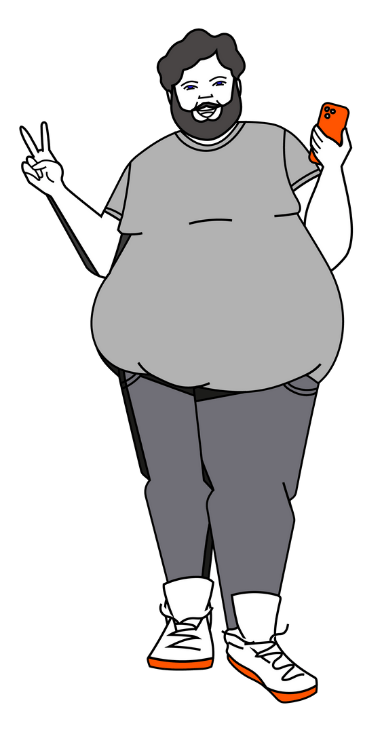
WeGlad is an innovative project created with the goal of making cities accessible to all, removing architectural barriers and promoting social inclusion, thanks to technology. WeGlad is an open-source app that maps the barriers in urban centres, allowing everyone to experience the city in the same way, created by Petru Capatina and Paolo Bottiglieri. Its mission is to promote the collaboration and responsibility of citizens, so that cities can become accessible places with no exclusion.
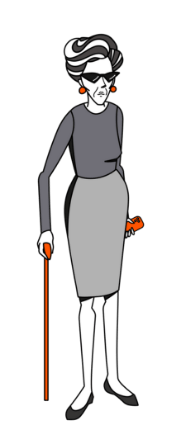
In our interview with Petru Capatina, CEO of WeGlad, we had the opportunity to find out more about the origin and development of the project.
How did the idea for WeGlad come about and what were the initial objectives of the project?
WeGlad was inspired by two experiences that affected me greatly. The first was an accident: I was hit by a car 15 years ago. Being stuck in bed made me realise how much I had taken my legs for granted, and how many difficulties I was going to have.
The second relates to a dear friend, an acrobat, who seriously fractured both his feet in an accident. Circus performers have movement in their blood, and his desire to maintain a social life was unstoppable. Finding accessible bars or pavements that follow regulations was an undertaking.
This is why, when I began to dedicate myself to exponential technologies with a strong social impact, this was the first problem I wanted to address, because it is important, urgent and invisible.
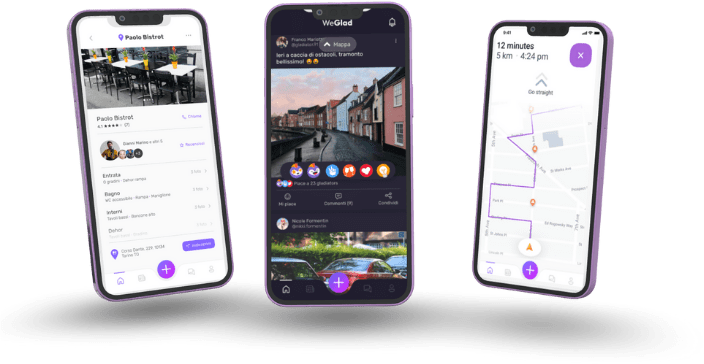
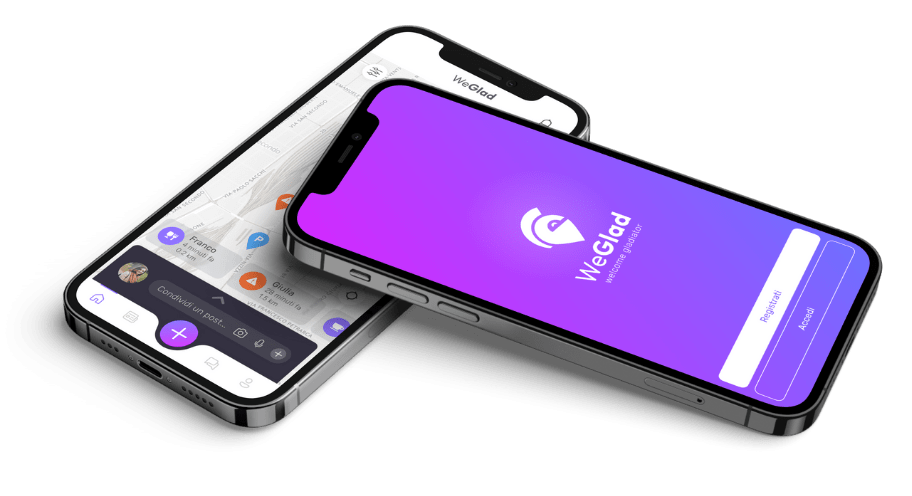
What is the current state of WeGlad, and what results have you achieved so far?
Today, WeGlad is an exceptional start-up: in the last 13 years, the same challenge has been faced by 17 companies, all of which failed. It requires a great deal of competence, familiarity with technology and the digital world, and an extensive network.
Today we are independent, and I say this with great pride, because we are working with a unique level of intensity and quality. This is a very delicate, complex business segment, and it brings with it a lot of structural, chronic emotion and frustration.
We wanted to differentiate ourselves from the beginning by combining intelligent technology, community, gamification, stakeholder engagement and high quality of collected data, with no "ghettoisation", because creating a divisive circle is not in line with our concept of inclusion, and we know it is disastrous.
2023 has been a year of achievements: we won the first prize at the United Nations ESG championship, I was added by Nova and Bocconi to the list of the top 10 under-35s in social impact, I was selected for the Myllenium Award as person of the year, and we won the first prize at ComoLake2023, where we competed with multinationals and institutions. Exceptional achievements for a micro-business like ours.
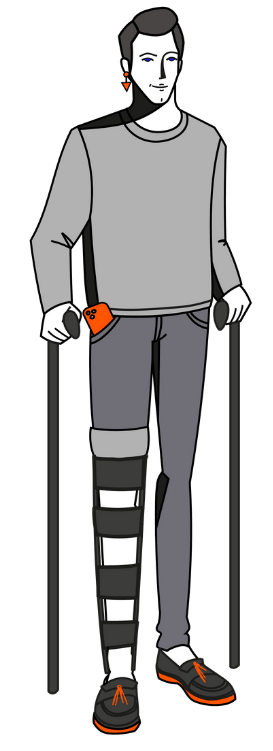
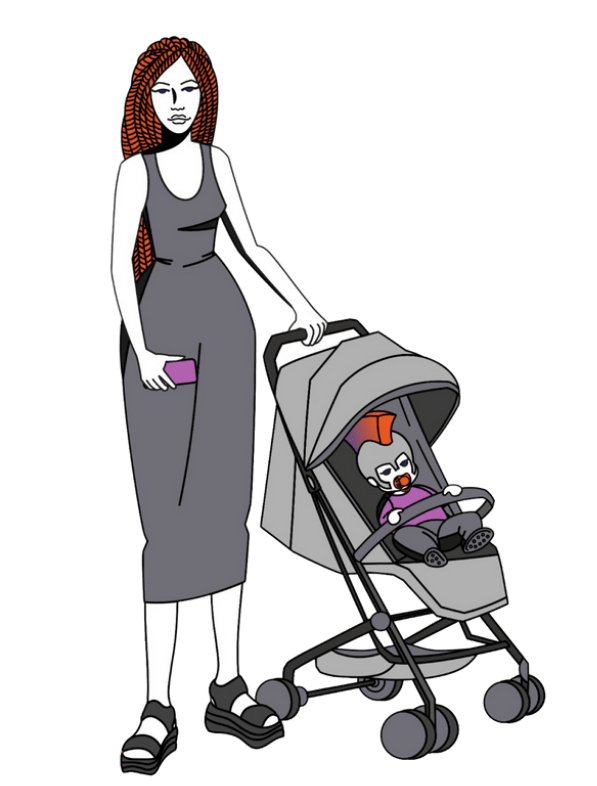
What challenges have you faced during the development of WeGlad, and how have you overcome them?
Challenges are a daily occurrence. The first was to find a competent, ambitious partner who wouldn't take "no" for an answer, like me. Riccardo Taverna, now our President, was the key person who really turned things around.
Another challenge was the technology: finding someone with good technical skills, emotional intelligence and the capacity for a holistic vision of the synergy between tech, algorethics and business was really difficult. Thomas Traspedini is the person who best represents these characteristics, greatly accelerating our development.
Much of the resistance we encounter is political, but fortunately there are also visionaries in the public. There are also divisive problems connected to the intense competition in the voluntary sector. We try to create networks between those with the courage to look beyond their own interest. We also face obstacles created by managers who are not very sensitive to the issue, or by activism from disabled people that is not always productive, and at times involves elements of toxic anger. We are now very methodical, and nothing can stop us with regard to our mission; in fact, we are trying to "reclaim" the ecosystem, guiding it towards collaboration. We always say that our SDG is number 17: while other people tell us what to do, this goal tells us how - together.
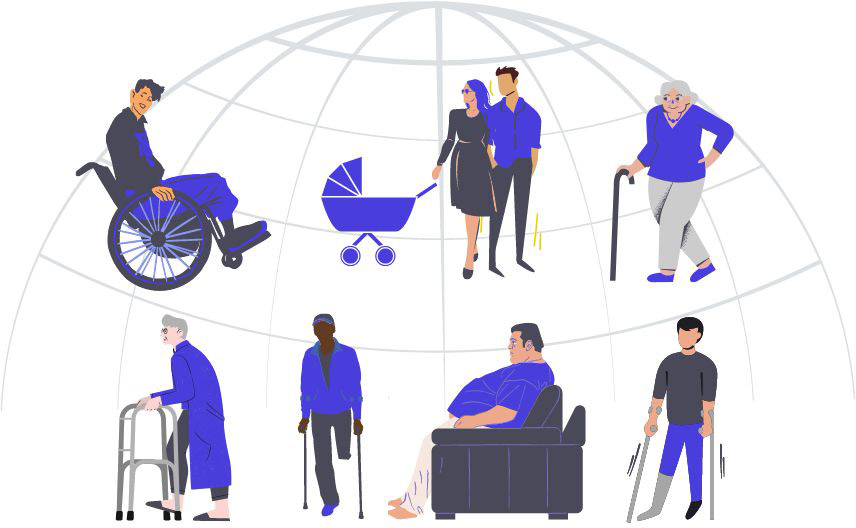
The final challenge we have faced is changing our business model. Although it was working, and was appreciated by corporations, for us the conversion time was too long, so we changed to a model more connected to retail. We launched our new product in September: now we are supporting the first 20 companies, including banks, insurance firms, fashion companies and supermarkets, in making the data from their branches more transparent through the integration of a widget that will go online within a few days on their company platforms, which their stakeholders are already used to navigating.
The next challenge we will face is expansion into new countries. Often, the validation of an international ecosystem facilitates operability in your own country, and every time we return to Italy it magically seems as if things are happening faster.
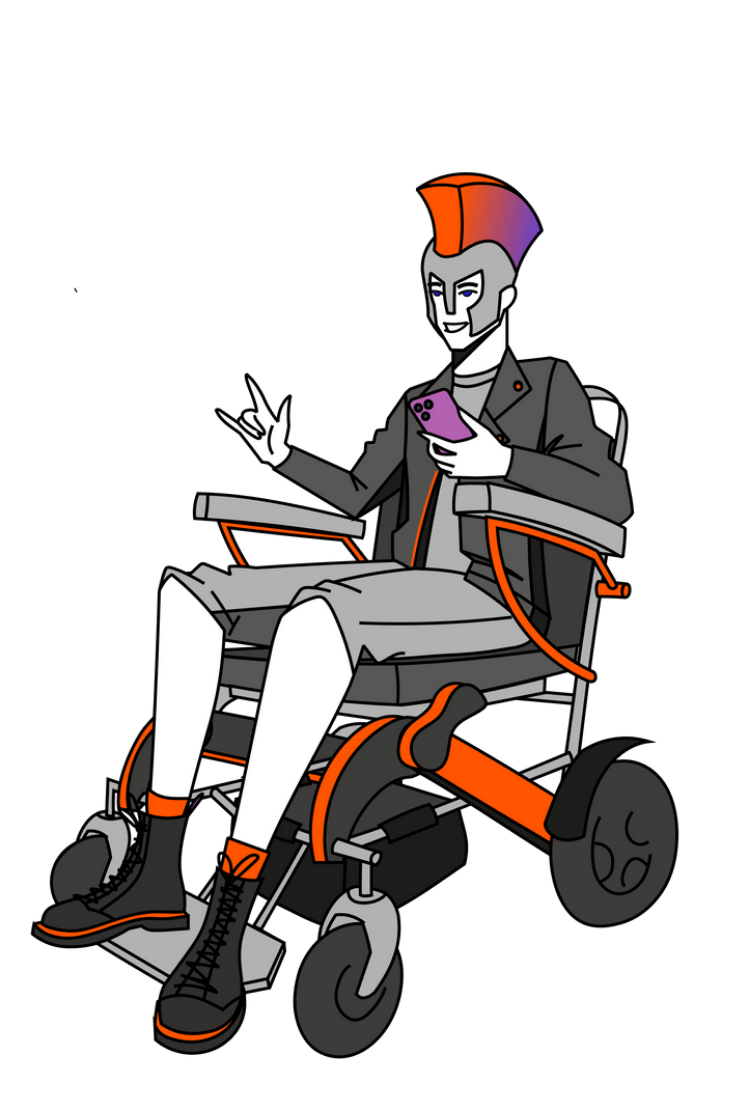

How has the reaction of users been so far?
We have established a wonderful relationship with our community. They orient us at all times, whether positive or negative, and their feedback is our guiding star. Thanks to them, we understood that many elements in the mapping cycle needed to be simplified - not everyone who wants to contribute to the project is familiar with some concepts. We need dedicated areas and themed rooms where we can interact on specific issues and receive support from experts. It is also necessary to moderate interactions in order to find the right compromise between freedom of speech and quality of contributions.
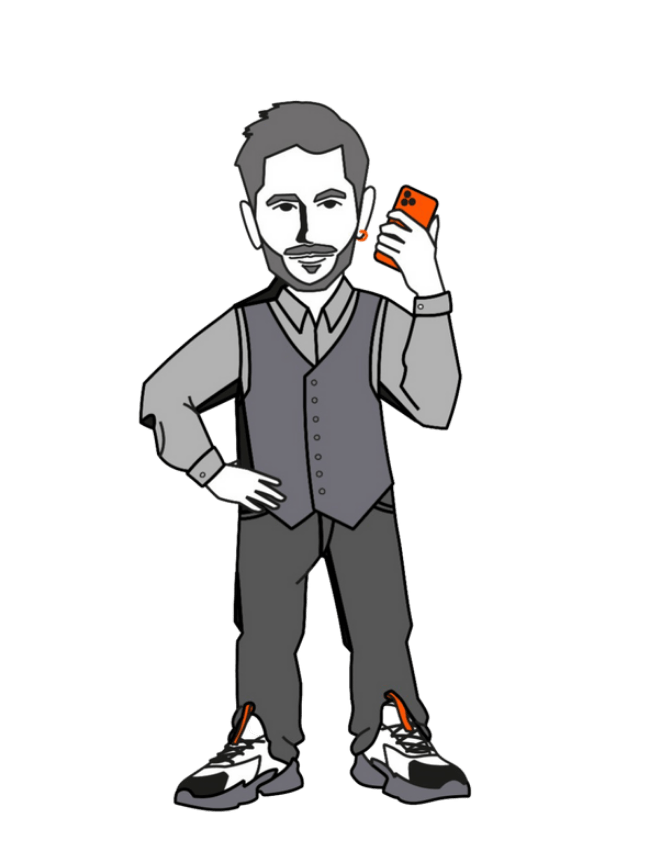
How is WeGlad helping to improve people's lives?
It is as complex as it is simple: we restore dignity by facilitating people's independence. Mobility is the flow that connects every talent to their opportunities. There is not yet enough data, but WeGlad is closing the gap: transparent, objective, granular data on the accessibility of streets and establishments. Just think about the fact that Musk is taking us to Mars, but here on Earth, people can't get onto the pavement because of the step up.
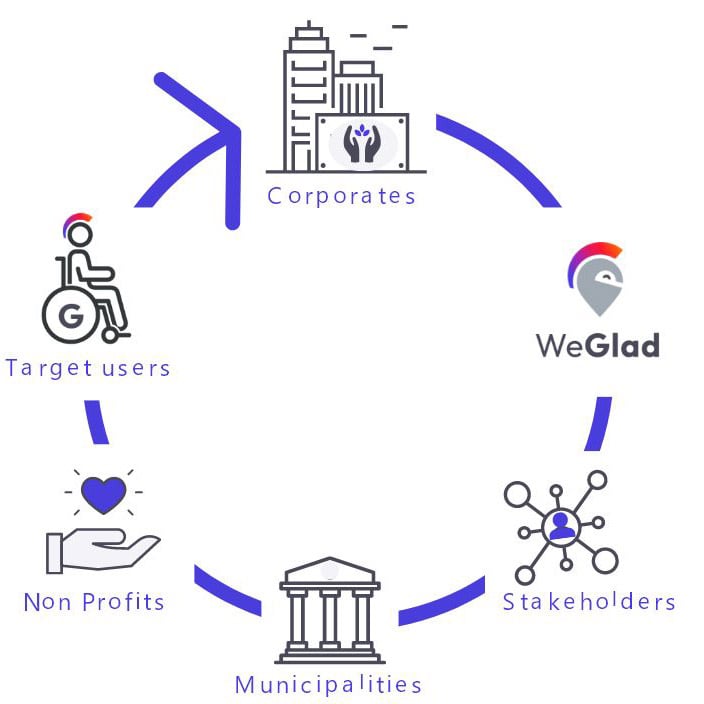
Do you have any advice or suggestions for those who might be interested in using or supporting WeGlad?
We need you! Download the app, write to us on our social media pages or by email, or come and find us in our office! We are approachable and receptive to anyone who wants to join us in this arena, where we just want to build success for everyone. We are the gladiators of accessibility!
And obviously, start mapping! In just a few seconds you can map an architectural barrier, while you are moving around or while you are having a drink in a bar. The seconds you put in give back hours to thousands of people. You have no idea how useful you can be to others, with so little.
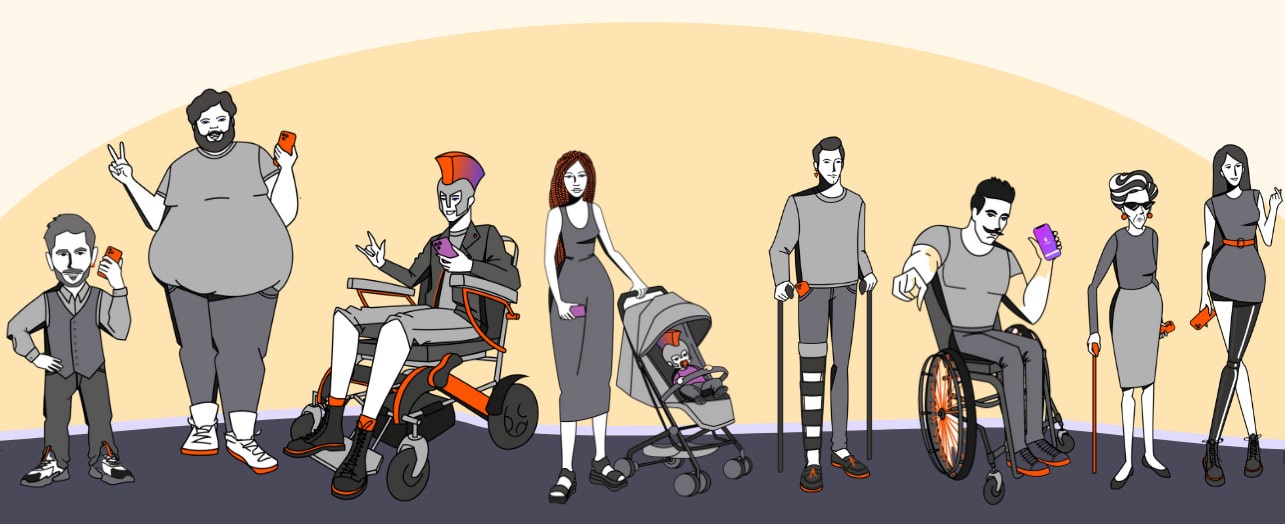
Images Credits:
© WeGlad
A startup uses AI to diagnose neonatal conditions through crying. A revolution for newborn care in developing countries.
Fashion and technology connected to drive innovation and promote sustainability. The metaverse offers many opportunities, but also poses many challenges.
